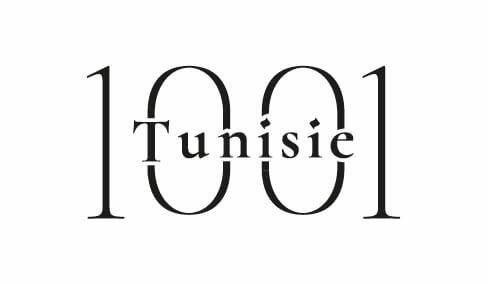
It is in favor of a conference on “Fair Trade for Sustainable Agriculture” a Tunisian that a Platform on Fair Trade (TCEP) will be launched shortly. The opportunity for more information with Tarek Kaoueche, an expert in social economy and the project coordinator. Interview with Amel DJAIT.
1001Tunisie: Finally, we would be tempted to say! Tunisia organizes the 1st National Conference on fair trade in agriculture and food products. What are the objectives of this event?
Tarek Kaouache: You are quite right to use the word “finally” because it is amazing to see in Tunisia, a country where the vast majority of farms are family-owned, only 3 fair trade projects of agricultural products emerged.
The latest, that of Majel Bel Abbes in Kasserine is a SMSA producing olive oil, nuts, and almonds fair and bio-equitable which was founded in 2016. I really do not want to make comparisons with other countries in Africa and, in particular, west Africa, or Morocco. It hurts the heart.
Does it not go without saying that this type of trading is particularly suited to small agricultural production?
Exactly. 54% of farms in Tunisia have less than 5 hectares (about 250,000 families) and 75% less than 10 ha. Did you know that 43% of families live solely from their agricultural activities and have less than 5 ha? This rises to 64% for areas of less than 10ha … In other words, our agricultural production relies mostly on small fragile and marginalized family farms and, from there, mostly eligible for fair trade label. Except that in practice, the subject remains taboo.
It is strange and appalling that organic farming benefits in Tunisia of financial and tax benefits and not sustainable agriculture that respects the principles of fair trade so as many social, economic and environmental aspects.
And it is precisely for that reason that you work to create a fair trade platform.
Our main goal is to find ways for each player in the value chain of agricultural and food products, from primary production to the final consumer, receives fair consideration for its contribution in terms of physical investments , time and hard work, risk, expertise … Our attention focuses on the two ends of the chain (and main victims of the current system) ie small farmers and end consumers.
 And what are the prerequisites to get there?
And what are the prerequisites to get there?
Start by initiating a debate with the various stakeholders on the opportunity to promote fair trade in agricultural and food products (in the first phase before moving to the handicrafts and tourism). Then we study the means to implement to get there with maximum social impact and as soon as possible.
That said, it is important to specify that fair trade does not mean that all current business activities are unfair. We are to explain to stakeholders that fair trade can be an opportunity for honest traders, especially new and young developers, who could benefit from this niche enjoying the sympathy of a number in exponential increase consum’actors seeking social values and fairness.
Materially, who will take the project?
Materially, the goal is to launch a Tunisian platform of Fair Trade and Solidarity which will be the statutes of an association or economic interest group. Its main tasks will be to highlight the interest of this sector both from economic point of view, environmental and social terms. This is to start the membership process with the various actors.
2 / Who are the partners? That is concerned with fair trade? What place and awareness is it fair scheduled for the consumer?
The project to promote fair trade in Tunisia has been brewing for 3 or 4 years, but had not, at the time, the attention of policymakers. For nearly ten months the Tunisian platform of the social economy (PLATESS), the consumer cooperative “Tunisia Coop” and the trade association of agricultural advisors (CSNCA) decided to put together ( which is rare in Tunisia) to promote the concept of consum’actor.
In our case, it is about promoting organic products, from fair trade or local, to limit the overpack, promote local shops, etc.
Did you find support?
In fact, we were in the fundraising stage for the launch of 4 outlets operating on this principle, before launching a social franchise open to young graduates of higher education when Mr. Samir Taieb was appointed Minister of Agriculture. In just 72 hours, we filed an application requesting his support for the organization of this conference. On September 9, we had his agreement to ensure openness and provide us with his team of advisors.
And consumers in all this?
Instead of consumer awareness fair is one of essential principles. It is widely recognized by almost all of the fair trade movement. About us, from the start of the action plan, we will tackle the question of awareness because we believe the main obstacle to the development of this concept in Tunisia was ignorance if not disinformation his subject.
3 / What can fair trade bring to women, local products, the disadvantaged producers ….?
I do not agree to the use of the term “disadvantaged producers.” I prefer that of “marginalized producers.” It seems more appropriate to me because the situation of these people is not a fatality but the predictable result of social policies implemented in Tunisia for decades. Policies that favored the capital at the expense of labor.

It is noted, and regardless of the category, that can bring fair trade to those who need it?
Fair trade should allow people who work and who have a particular expertise, as is the case of local products, enjoy an income enabling them to ensure their families a respectable life. A life and up to the value they bring to society in terms of productions and preservations of the environment and traditions.
4 / Will Tunisian fair label be born soon?
The interest of a label is measured by its visibility, recognition of the values it adds and trust that the consumer gets. So indeed, we consider the development of a “fair” label Tunisia and prefer the term “solidarity”. This will, for starters, on products for the local market, the weather is better known abroad and that foreign partners expressed the need to market.
What are its characteristics?
This “solidarity label” pays particular attention to the gender aspect favoring products from farms to processing plants and businesses run by women or scrupulously respecting women’s rights, in accordance with the requirements of World Labour Organisation, and more.
We believe that Tunisians are particularly sensitive to the most marginalized classes, living mainly in rural areas and especially the woman who, as everyone knows, endure most conditions and faces incredible odds.
We bet that citizens understand that it is more useful to buy products labeled “Solidarity Trade” because through their purchases, they invest in the improvement of sustainable and durable way, the living conditions of the families that have produced it. This will be much more useful than sending donations (sunk) in school year peiod or of extreme cold or drought … This is not to be discouraged further!
5 / Is the internationalization of this label on the news?
Making known a label and its values internationally is a long process. It takes a lot of time and resources. The internationalization of this label will be gradual. For starters, and as regards the products for export, we expect to meet market demand by adopting labels required by the identified potential customers.
Finally ?
Let me conclude by emphasizing that in terms of “fair trade”, it refers to “trade”. There is no shame in making profits. As a trader, we must respect the different players in the value chain and their labor.
I know that the event disturbs some people, but I’m sure this is due to ignorance of the fundamental principles and founders of this practice. One of our main objectives is to remedy this by information and large-scale awareness campaign.

 َAbonnez-vous
َAbonnez-vous

